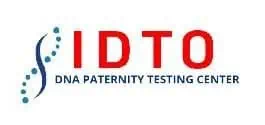DNA Testing has become a powerful tool used to help support the probability of paternity conclusively in the majority of cases. However, an inconclusive outcome could occur on occasions. In this post, we discuss what an inclusive paternity test result is and what factors could produce this outcome.

What does an inconclusive paternity test result mean?
An inconclusive DNA test result means the DNA analyst was unable to definitively confirm a biological relationship between two individuals due to an unusual factor such as a genetic mutation or contamination of samples.
It should be noted that inconclusive results seldom occur. In 348,000 paternity cases 0.41% less than 1 percent of the time an inconclusive result is produced. Incorporating the mother as part of the test could help to avoid an inconclusive result due increased statistical data available to the DNA analyst.
Can a paternity test be inconclusive?
Yes, paternity test results can be inconclusive. Below are a few circumstances that could produce an inconclusive outcome.
1. Insufficient DNA: When DNA samples are collected and the samples do not have enough genetic material to produce a conclusive result.
2. Mutations: If a DNA mutation occurs, it can make it difficult for the DNA analyst to conclude biological relatedness definitively.
3. Technical or procedural errors: Although very seldom, equipment malfunction or mix-up of samples (human error) can lead to an inconclusive result.
4. Close relatives: If the alleged father has a twin brother, it may be difficult to differentiate between their DNA profile to produce a conclusive. Although this scenario is possible, in our experience seldom occurs.
5. Chimerism: Human chimeras are extremely rare, and they occur when one twin absorbs the other in utero. The surviving twin will be born with two sets of DNA. If an alleged father is a chimera it could produce an inconclusive or exclusion result.
6. Mixing of samples: If a DNA sample collector incidentally combines two separate samples of two or more people. This could produce inconclusive results. When this occurs samples will have to be recollected for additional testing.
What can be done to prevent inconclusive results?
Inconclusive paternity test results seldom occur, here are some things you look out for to increase your chances that a result be produced.
- Choose a DNA Testing company like IDTO DNA Testing Center that provides AABB accredited DNA testing services. DNA companies that offer accredited services that adhere to a sample collection protocol recommend accrediting body’s guidelines.
- Accredited labs have required set of genetic DNA markers that can also contribute to producing a definitive result.
- Check your medical history to ensure that you are not a chimera. Many people are unaware that they are so speak with a medical professional if you believe that you are a chimera. If you have this knowledge ahead of time, please inform the DNA testing personnel. This will allow them to inform the lab analyst to help them make sense of the data.
- Communication with IDTO before scheduling your appointment about the close relationship between two alleged fathers will be helpful in being able to inform you of the likelihood of a relationship possibly producing an inconclusive result.
- Please keep in mind the suggestions provided do not avoid inconclusive results but are recommendations to increase the likelihood a conclusive results are produced.
Conclusion:
In conclusion, a paternity test can produce an inconclusive result. Although this occurrence seldom happens. Be sure to ask questions when scheduling your appointment, make the DNA testing company of your choice is an AABB-accredited and speak with your medical practitioner about any rare genetic instances like chimerism.
For paternity testing services, call IDTO at 888-204-0583 or schedule an appointment online today.
